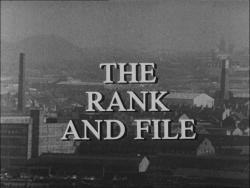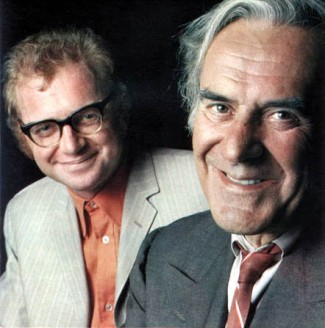by JOHN WHEATCROFT
Play for Today / The Largest Theatre in the World Writer: Ingmar Bergman; Translated by Paul Britten Austin; Producer: Graeme McDonald; Director: Alan Bridges
‘The truth will tear us apart’
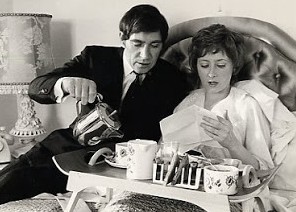
There has been much talk recently about contemporary television producing drama superior to anything that the cinema currently has to offer. Any vestiges of snobbery about the supposed inferiority of the small screen have been snuffed out with directors such as Martin Scorsese and David Fincher choosing to work in television. Jane Campion, the New Zealander who directed An Angel at my Table and The Piano, said in an interview for The Times that TV is now producing the more pioneering work. Campion, who has directed a six-part crime thriller for television which was launched at Sundance and received its European premiere at the Berlin Film Festival, said after seeing HBO’s Deadwood: ‘Who is commissioning this stuff? This is a revolution, something is really happening in television.’1 It does not follow of course that revolutionary film directors will have a big impact (Scorsese’s Boardwalk Empire had mixed reviews) when they transfer their attentions to TV.
Ingmar Bergman’s first British television play The Lie is a historically interesting but modest piece of work. Historically interesting because of the play’s genesis: it was commissioned by the Swedish Broadcasting Corporation on behalf of European members participating in ‘The Largest Theatre in the World’. This, the Radio Times explained, was ‘a project which enabled a play to be broadcast simultaneously in several languages across Europe.’2 The UK Play For Today version was directed by Alan Bridges; an American version was put out on CBS, directed by Alex Segal.3

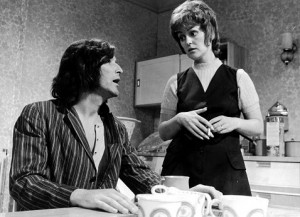
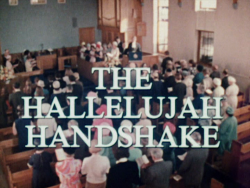 Not until the end of The Hallelujah Handshake do we discover the real identity of its central character, David Williams (played by Tony Calvin).
Not until the end of The Hallelujah Handshake do we discover the real identity of its central character, David Williams (played by Tony Calvin).